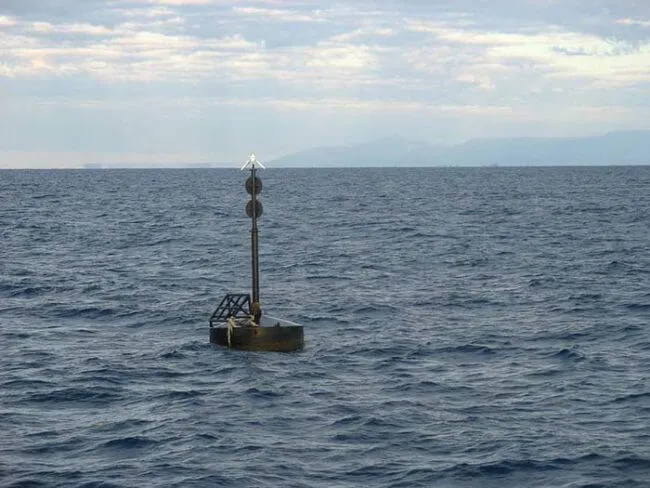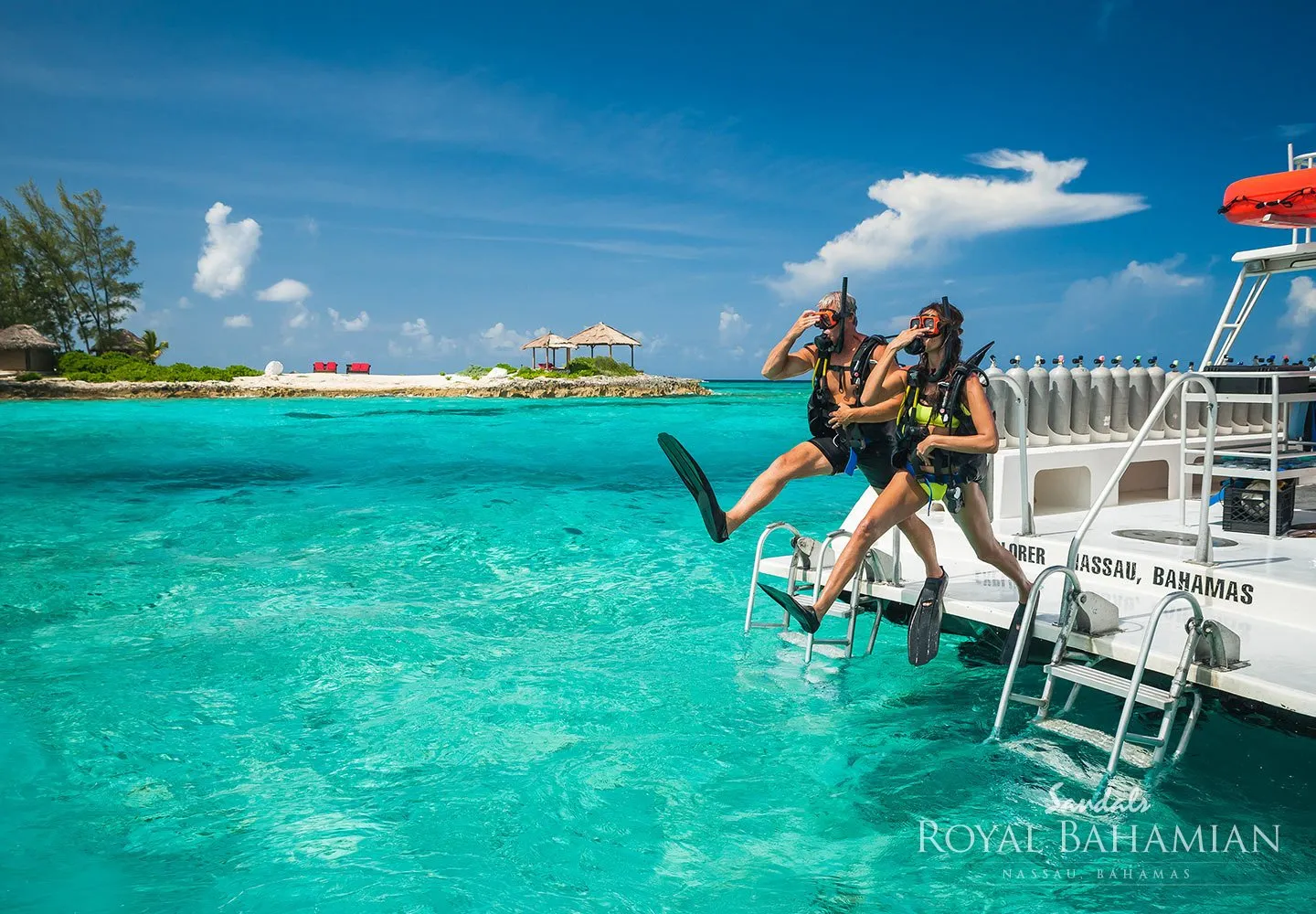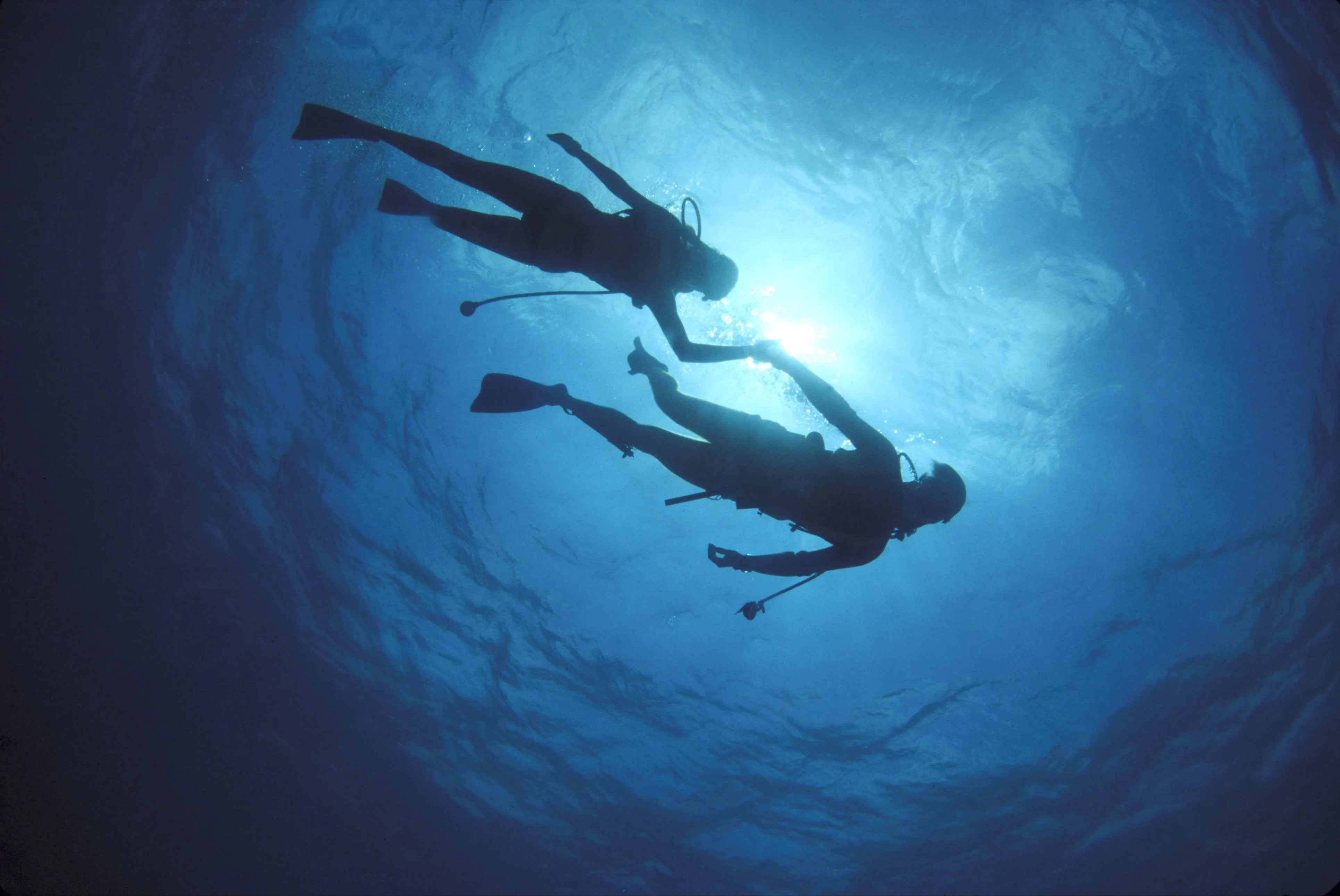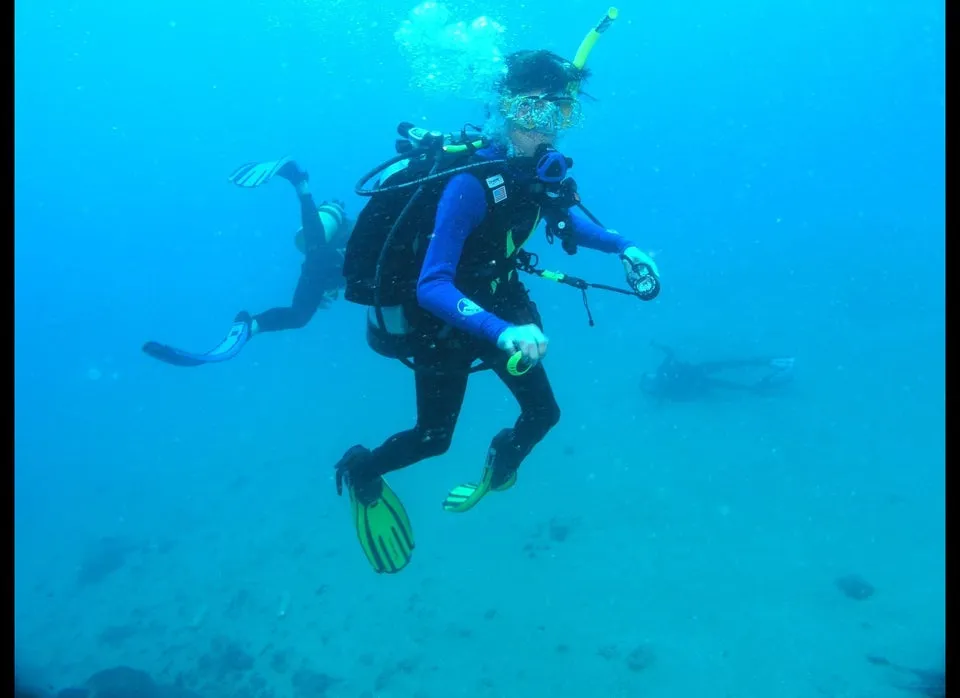Scuba Diving Death Honeymoon Avoid These 5 Mistakes
A scuba diving honeymoon is a dream for many couples, a chance to explore the vibrant underwater world together. However, this exciting activity can carry serious risks if not approached with caution. The term “scuba diving death honeymoon” is a stark reminder of the potential dangers. Ensuring safety is paramount for a memorable and joyful experience. Avoiding common mistakes is key to preventing tragedy and enjoying a safe and unforgettable underwater adventure. This article highlights the top five mistakes that can lead to disaster, providing essential information to keep you and your partner safe on your scuba diving honeymoon. Prioritizing safety will allow you to create lasting memories and cherish your shared underwater experiences, strengthening your bond and celebrating your love.
Mistake 1 Overconfidence and Lack of Experience
One of the most significant contributors to accidents is overconfidence, often fueled by inexperience. Newly certified divers or those with limited experience may overestimate their abilities, leading to risky decisions. Diving requires a solid foundation of skills and knowledge, and assuming competence without sufficient practice is a dangerous pitfall. It is crucial to be honest about your skill level and choose dives that match your experience. Another aspect to consider is the excitement of a honeymoon, which can sometimes cloud judgment and lead to reckless behavior. Avoid the temptation to push your limits or dive in challenging conditions before you are truly prepared. Proper experience is a must for a safe scuba diving honeymoon.
Neglecting Proper Training

Adequate training is the cornerstone of safe diving. Skipping refresher courses, neglecting to review essential skills, or ignoring the need for specialized training for specific dive environments can be detrimental. Proper training equips you with the knowledge and skills needed to handle various situations, including equipment malfunctions, emergencies, and adverse conditions. Always prioritize continuous learning, and seek out training opportunities that enhance your diving capabilities. This is particularly important when preparing for a scuba diving honeymoon because dive environments can vary significantly. Ensure you and your partner undergo the necessary training before embarking on your underwater adventure. Consider taking courses or refresher courses tailored to the specific dive sites or conditions you plan to encounter during your honeymoon, to be extra safe.
Ignoring Dive Conditions
Dive conditions can change rapidly and significantly impact safety. Ignoring factors such as currents, visibility, and weather can put you in a precarious position. Before each dive, carefully assess the conditions and make informed decisions about whether or not to proceed. If the conditions exceed your comfort level or skill, it is always best to postpone or choose an alternative dive site. This includes understanding the impact of tides, the presence of marine life, and potential hazards. A good dive operator will provide detailed briefings, but you should also independently assess the conditions and make your own judgments. Regularly check the weather forecast, consult local dive reports, and be prepared to change your plans if necessary. Dive conditions are also an important aspect of ensuring a safe scuba diving honeymoon.
Mistake 2 Poor Buddy Communication and Planning
The buddy system is a fundamental principle of scuba diving. Effective communication and thorough planning with your dive buddy are vital for safety. Neglecting these aspects can create dangerous situations. This is particularly crucial on a honeymoon, as you want to enjoy the moment. Ensure you and your partner establish clear signals, discuss emergency procedures, and agree on dive profiles and limits before each dive. Remember, your buddy is your lifeline underwater, and open communication is essential to a successful and safe dive. Planning and communication are important for a safe scuba diving honeymoon.
Inadequate Pre-Dive Briefing

A comprehensive pre-dive briefing is a must. This briefing includes discussing the dive plan, identifying potential hazards, and reviewing emergency procedures. Failing to conduct a thorough briefing leaves you and your buddy unprepared for unforeseen circumstances. A well-executed briefing helps you anticipate and respond to potential problems, such as equipment malfunctions or changes in dive conditions. Take the time to address any concerns and ensure you are both comfortable with the plan. Dive operators usually provide briefings, but it is your responsibility to actively participate and understand all aspects of the dive plan. Discuss hand signals, equipment, and emergency plans before diving. A quality briefing is another key to ensuring a safe scuba diving honeymoon.
Lack of Buddy Awareness
Buddy awareness involves being constantly attentive to your buddy’s well-being and behavior. Regular checks, monitoring air consumption, and being alert to any signs of distress are essential. Neglecting buddy awareness can lead to a delayed response in an emergency. Maintain close proximity, use appropriate signals, and be prepared to assist your buddy if needed. Practicing these skills helps you create a reliable diving partnership. A honeymoon is the perfect time to build teamwork. Dive as a team, look after each other, and be prepared to respond to potential problems quickly. This promotes a safe scuba diving honeymoon.
Mistake 3 Equipment Malfunctions and Negligence
Properly maintained equipment is critical for safe diving. Neglecting equipment checks and maintenance increases the risk of malfunctions, which can be life-threatening underwater. Always inspect your gear before each dive, ensuring it is in good working order. This includes checking the regulator, buoyancy compensator (BCD), mask, fins, and dive computer. This is an important step for a safe scuba diving honeymoon.
Improper Equipment Checks

A thorough equipment check should be performed before every dive. This includes checking the air tank pressure, regulator function, BCD operation, and weight system. Failing to identify equipment problems before entering the water can lead to serious complications. Follow a checklist to ensure that all components are functioning correctly. Don’t be afraid to ask for assistance from the dive operator if you’re unsure about any aspect of your equipment. Taking the time to do these checks will ensure a safe scuba diving honeymoon.
Ignoring Equipment Maintenance
Regular maintenance is crucial for the longevity and reliability of your scuba gear. This includes rinsing equipment after each dive, storing it properly, and scheduling regular servicing by a qualified technician. Ignoring maintenance can lead to equipment failure, which can compromise your safety underwater. Inspect your gear for signs of wear and tear, and address any issues promptly. Keep your gear in good condition for your honeymoon. Ensuring your equipment is up to date is essential for a safe scuba diving honeymoon.
Mistake 4 Diving Beyond Limits and Ignoring Warnings
Adhering to established diving limits and heeding warning signs are crucial for safety. Pushing beyond these boundaries dramatically increases the risk of accidents. This includes depth limits, no-decompression limits, and ascent rates. The desire to explore deeper waters or stay underwater longer can be tempting, but it is always best to prioritize safety. Ignoring warning signs, such as adverse weather conditions, strong currents, or marine life behavior, can also lead to danger. Dive within your training and comfort levels, and always be prepared to abort a dive if necessary. This is a must for ensuring a safe scuba diving honeymoon.
Exceeding Depth Limits

Depth limits are set based on training and safety guidelines. Exceeding these limits increases the risk of decompression sickness and other diving-related injuries. Diving too deep can lead to nitrogen narcosis, impaired judgment, and other dangerous effects. Always adhere to the depth limits specified by your certification level and the dive site. It is vital to monitor your depth gauge throughout the dive and avoid exceeding the maximum depth for your level. Be responsible and keep within depth limits for a safe scuba diving honeymoon.
Ignoring Ascent Rates
Proper ascent rates are essential for preventing decompression sickness. Ascending too quickly can cause nitrogen bubbles to form in the bloodstream, leading to serious medical conditions. Always ascend slowly, following the guidelines of your dive computer or the dive operator. Make safety stops at the recommended depth to allow your body to off-gas nitrogen. The general recommendation is to ascend no faster than 30 feet (9 meters) per minute, but check the specific requirements for your dive. Using a dive computer will help you regulate your ascent rate and prevent issues. Be sure to maintain proper ascent rates for a safe scuba diving honeymoon.
Mistake 5 Health Issues and Lack of Preparation
Health issues can significantly impact your ability to dive safely. Ignoring medical conditions, or failing to prepare properly for the dive environment, can lead to serious complications. This includes failing to consult a physician about any underlying health concerns, or failing to acclimatize to the altitude or temperature. It is vital to prioritize your health and well-being when scuba diving, especially on a honeymoon. This is a must for ensuring a safe scuba diving honeymoon.
Ignoring Medical Conditions

Certain medical conditions can increase the risk of diving-related injuries. Before diving, it is essential to consult a physician and disclose any health issues, such as heart problems, lung conditions, or ear infections. Some medications can also affect your ability to dive safely. Your doctor can provide personalized advice and assess whether you are fit to dive. Ignoring medical advice can have serious consequences. Always put your health first and be honest with your healthcare provider about your plans. Ensure your medical conditions will not put you in danger on your safe scuba diving honeymoon.
Failing to Acclimatize Properly
Acclimatization is the process of adjusting to changes in altitude or temperature. Failing to acclimatize properly can increase the risk of decompression sickness or other health issues. Before diving at altitude, take time to adjust to the thinner air. Similarly, acclimatizing to the water temperature can prevent hypothermia. Ensure you gradually adjust to any changes in environment before diving. This is an important factor to consider for a safe scuba diving honeymoon.
Conclusion Diving Safely on Your Honeymoon
A scuba diving honeymoon can be an unforgettable experience when approached with respect for safety. By avoiding these five common mistakes – overconfidence, poor communication, equipment negligence, exceeding limits, and ignoring health concerns – you can significantly reduce the risk of accidents. Remember to prioritize training, proper planning, and open communication with your buddy. Always be aware of your surroundings, respect the dive environment, and never hesitate to err on the side of caution. By embracing safe diving practices, you and your partner can create lasting memories. With proper training, planning, and adherence to safety guidelines, your scuba diving honeymoon can be a truly magical and safe experience. Prioritize safety. Then your scuba diving honeymoon will be an enjoyable and unforgettable start to your married life. Remember to always dive within your limits and enjoy the underwater world together!
